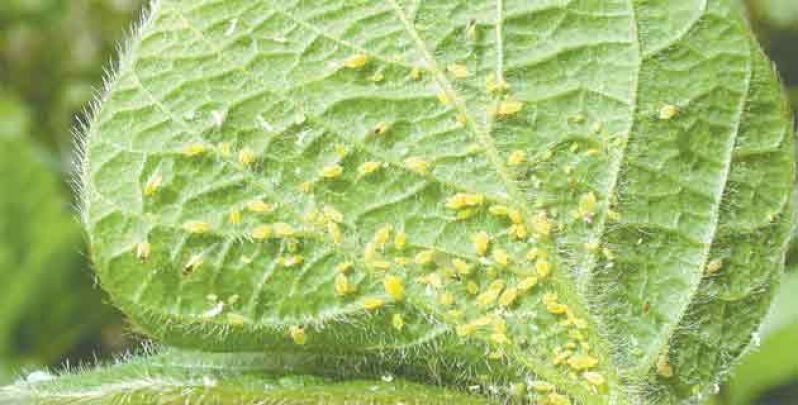More on Biological Control:
In Integrated Pest Management (IPM) Biological control has to do with all the natural enemies of the insect pests, all of the parasitoids all the predators all the small wasps and the lady bugs ;all the insects that are on your side. The gardener needs to promote these natural enemies because the problem is that the beneficial wasps and the predators only come when the population is pretty high. There are specific wasps that go for aphids and there are specific wasps that go for white flies and it is nice to have them around because they are going to really target your pests. They can smell the insect pests but they can only do so when the population is pretty high. The gardener has to find other ways to attract them and get them to stay. Contact your nearest Agricultural Extension Officer for more information on biological controls which work in managing and controlling insect pests. Some flowers of plants that attract predatory flies and other natural enemies of the insect pests and that are available locally are dill cilantro and carrot. Sunflowers are a magnet for aphids and can be used a trap for this pest. You can plant sunflowers to trap the aphids and then destroy the flowers when the pest population gets too high. Keep in mind that if you have hibiscus in your area it is a huge attractor for white flies. White flies love hibiscus. If you have hibiscus in your garden remove it .Another way to manage aphids is to manage ants. Ants farm aphids very much like how humans farm cows. Ants will gather aphids, protect them, move them to different locations and help to keep them out of the garden. So keep an eye on the ants; they will lead you to where aphids are. More on natural pesticides: As indicated before, some natural pesticides are pepper, garlic and neem extracts . The reason why the neem is important is that the it is an Insect Growth Regulator (IGR) ; it stops the insect from being able to grow to the next stage of its life cycle. More on Cultural Control: Cultural control includes crop rotation. If you do not have crop rotation you are giving pests a wonderful place to live and reproduce and create problems for the crop. Remove the leaves under attack and destroy them because if you take off those leaves and drop them on the spot, the pests will hatch on the ground and move right up onto the plant to continue their destruction. More on Chemical control: The idea is to use less chemical control because when you use chemicals you kill not only pests but the beneficial wasps and the predators as well. . The concern about chemicals is not only about health and the environment but about encouraging resistance which is using the chemicals so many times that the pest does not die from it anymore. When you use chemicals too often you are creating a bug that is no longer susceptible to that chemical and that means you are wasting hard earned cash If you have to use chemicals rotate them i.e: do not use the same chemical over and over again. Use on the same crop in the same area not more than three times a season. (By Clifford Stanley)




.jpg)










